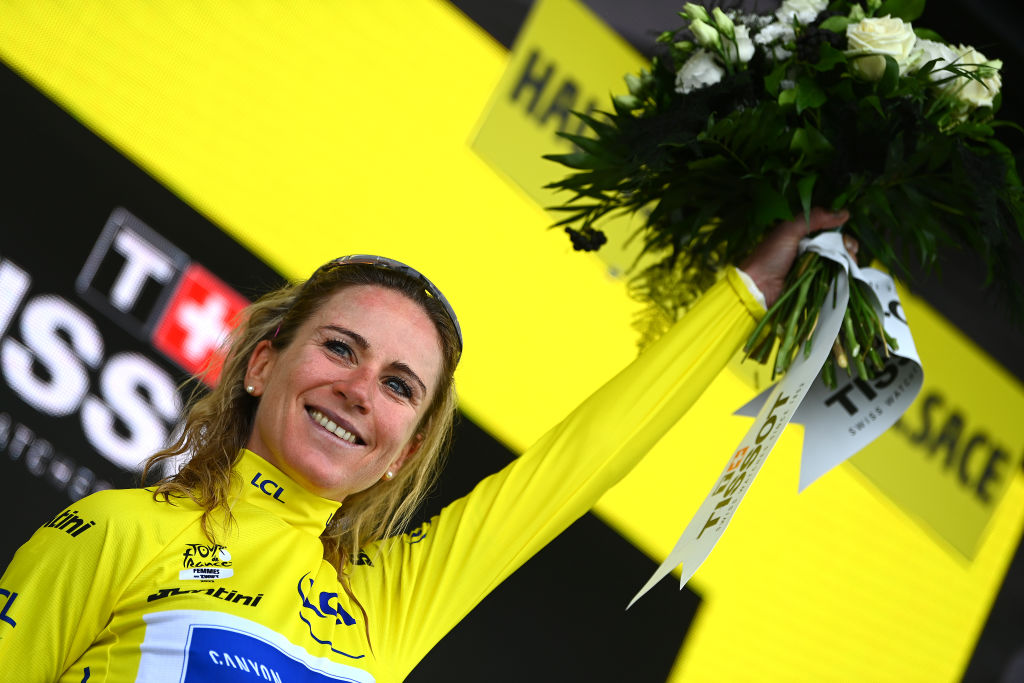Stage 7 winner and new yellow jersey wearer Annemiek van Vleuten (Movistar) has said her victory and taking Tour de France Femmes avec Zwift lead was made even more special after coming close to quitting the race in its opening stages.
Van Vleuten suffered stomach problems in the first three stages of the Tour and called her win on Saturday “a little bit of a miracle” and being “super close” to abandoning.
“[It’s special] because I know where I’ve come from,” she said after her win. “Being sick in the first three days of this Tour, that makes it extra special because I stayed believing in myself. But also the solo, having so many people here, the first Tour de France. I cannot explain what kind of feelings I have at the moment.”
Despite being solo for 60km of the stage, Van Vleuten described how she still could not quite believe what she achieved at the finish in Le Markstein.
“The whole Tour has been a rollercoaster,” she said. “I could not believe that it was still possible after being so sick and then being now here in the yellow jersey, because I was so close to quitting the race. It’s a little bit of a miracle.”
A long solo win is not an unfamiliar experience for Van Vleuten, but she reaffirmed that it was a tactical choice against her main rival, Demi Vollering (SD Worx), who finished second on the stage, and not just a demonstration of her strength.
“To win solo is nicer than to win the sprint her, also I could enjoy the audience more, but it was also a tactical point of view,” she said. “There was a long valley and Demi didn’t want to take turns with me so I really wanted to drop her before I was in that 15km valley because she would just sit in my wheel and then it would be way harder to drop her on the last climb.
“So it was more a tactical move than just that I wanted to win in a beautiful way.”
Many riders were left questioning how to beat the Dutch rider after her dominant display on the climbs on stage 7, and she herself offered an explanation of why her fitness level and strength in the mountains is higher than her competitors.
“That’s something that comes with years,” she said. “I also want to make it really clear with that, that sometimes my colleagues get comments that they should train as much as I do, but that’s not possible. That’s something that’s just a process with years. I’m 39 years old so for me it’s possible to train so many hours but that’s not because I suddenly [could do that], it’s just a process of many years.
“Every year you…
Click Here to Read the Full Original Article at CyclingNews RSS Feed…

